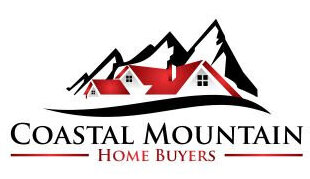
If you’ve gotten a foreclosure notice of default and want to know what the heck is going on, keep reading.
If you have fallen behind on your mortgage payments, you may receive a foreclosure notice of default. This notice is the first step in the foreclosure process and indicates that your lender has started the legal process to repossess your home. It’s essential to understand the implications of receiving a foreclosure notice of default and what you can do to prevent foreclosure.
The foreclosure notice of default must be sent to anyone who has an interest in the property (any other loans, lenders, or even contractors who are owed money for work done to a property will get a copy).
The foreclosure notice of default must also be published in a newspaper and physically posted in a prominent place on the property itself.
Although this can be really embarrassing to someone going through foreclosure, it’s actually a very important protection for consumers.
What is a Foreclosure Notice of Default?
A foreclosure notice of default is a legal document that your lender sends you when you have missed several mortgage payments. The notice informs you that your loan is in default and that your lender has initiated the foreclosure process. The notice will specify the amount you owe, the date you must pay, and the consequences of failing to pay.
What are the Consequences of Receiving a Foreclosure Notice of Default?
Receiving a foreclosure notice of default is a serious matter and could lead to the loss of your home. If you fail to respond to the notice or catch up on your payments, your lender can proceed with the foreclosure process, which could result in the sale of your home at a public auction.
What can you do if you receive a Foreclosure Notice of Default?
If you receive a foreclosure notice of default, you still have options. The first step is to communicate with your lender and try to work out a repayment plan or other alternatives to foreclosure. You could also seek help from a HUD-approved housing counselor who can provide guidance on the options available to you.
Another option is to sell your home before the foreclosure process is complete. If you owe more than your home is worth, you could consider a short sale, which allows you to sell your home for less than you owe. This option can help you avoid foreclosure and minimize the damage to your credit score.
Back before US law required a notice of default, people were sometimes foreclosed on without any warning.
In fact, it’s happened even in the past few years – at least one bank has accidentally foreclosed on the wrong property and kicked people out of their house without due process or warning. It’s even happened around Cape Coral.
The notice of default is a very important step within the foreclosure process that gives people with an interest in the property to step forward and claim their rights – before it’s too late.
people with an interest in the property to step forward and claim their rights – before it’s too late.
If you’ve received a notice of default, don’t wait. Time is definitely of the essence, and you should take action.
Here are a few key steps you should take:
1) Stay calm and don’t panic.
This may sound obvious, but it’s probably the most important. Anyone in foreclosure is dealing with a lot of stress beyond just the property. These situations don’t happen overnight, and they take a while to solve. You’ll get through it by practicing good coping techniques and taking good care of yourself and your family. Panic leads to bad decisions, so stay cool.
2) Educate yourself.
Learn everything you can about the foreclosure process in your state so that you know what’s happening and what’s coming up next.
3) Gather your resources.
There’s also many non-profit and government resources available out there. You’ll want good legal and tax advice along the way. Definitely don’t try to do it all yourself. This stuff is super complicated with lots of rules.
4) Learn your options.
We’re here to help you avoid foreclosure. We buy houses with cash. We can help you with short sales and even rent-back situations so you (potentially) may be able to keep living in your home. There are many more options than you think.
5) Communicate.
The banks involved don’t want your property. They want money, and what you say matters a lot. You can slow down or stop the foreclosure process if you take the appropriate action.
Want to know more?

